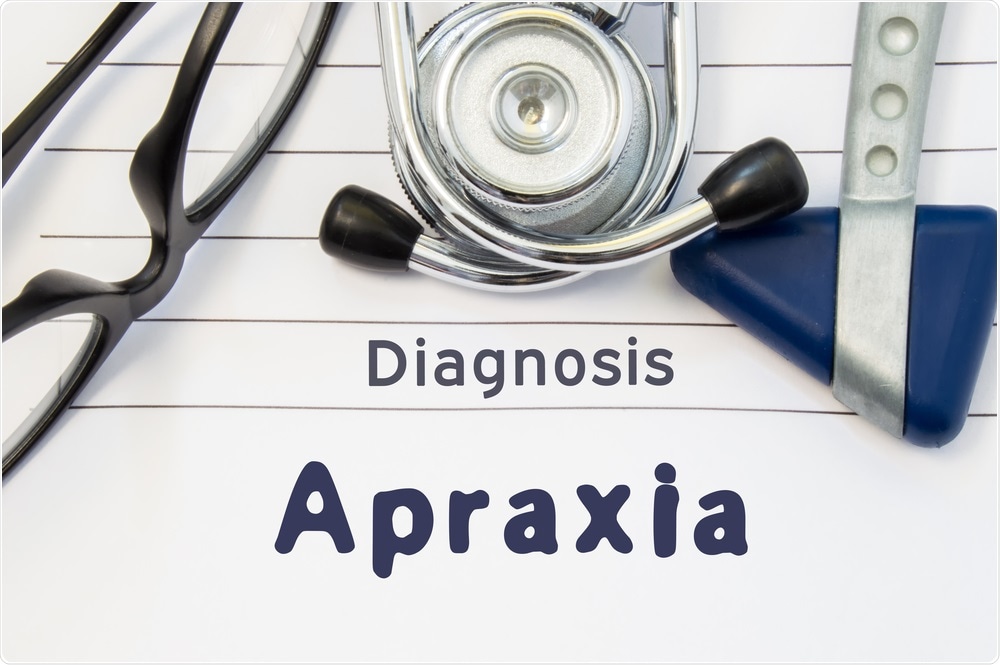An international study led by Melbourne researchers has discovered nine new genes linked to the most severe type of childhood speech disorder, apraxia.

Image Credit: Shidlovski/Shutterstock.com
The research analyzed the genetic make-up of 34 affected children and young people and showed that variations in nine genes likely explained apraxia in 11 of them. The genetic variations were caused by spontaneously and not inherited from their parents.
The research, led by the Murdoch Children's Research Institute (MCRI), the University of Melbourne and the Walter and Eliza Hall Institute of Medical Research, was published in X, 2020, online issue of Neurology®, the medical journal of the American Academy of Neurology.
MCRI Speech and Language Group Leader Professor Angela Morgan, who is also Professor of Speech Pathology at the University of Melbourne, said one in 1000 children have apraxia, and despite intensive investigation, the genetic origins of this debilitating speech disorder have remained largely unexplained, until now.
"Eight of the nine genes are critical in a process which turns specific language genes "on" or "off" by binding to nearby DNA," Professor Morgan said.
We found these eight genes are activated in the developing brain. This suggests there is at least one genetic network for apraxia, all with a similar function and expression pattern in the brain."
Professor Morgan said the new genetic findings would help neuroscientists and speech pathologists develop more targeted treatments for children.
"Apraxia is a distinctive, socially debilitating clinical disorder, and understanding its molecular basis is the first step towards identifying precision therapy approaches," she said.
Children with apraxia fail to learn to speak clearly and combine sounds properly. The timing and sequencing of their words are also affected.
Kids with apraxia typically have problems developing speech from infancy, with a history of poor feeding, limited babbling, delayed onset of first words, and highly unintelligible speech into the preschool years. Diagnosis is usually made when they are around age three,"
Professor Morgan
Researchers from Austin Health, Victorian Clinical Genetics Services, The Children's Hospital Westmead, Monash University, Monash Children's Hospital, The Royal Children's Hospital, The Wesley Hospital in Queensland, John Hunter Hospital in NSW, Melbourne Children's Clinic, Griffith University, University College London, Florey Institute of Neuroscience and Mental Health, South Australian Health and Medical Research Institute, University of Adelaide, Great Ormond Street Hospital for Children NHS Foundation Trust in London, UCL Great Ormond Street Institute of Child Health in London, Max Planck Institute for Psycholinguistics in The Netherlands and Radboud University in The Netherlands also contributed to the findings.
Journal reference:
Michael S. Hildebrand PhD, Victoria E. Jackson, Thomas S. Scerri, Olivia Van Reyk, Matthew Coleman, Ruth Braden, Samantha Turner, Kristin A. Rigbye, Amber Boys, Sarah Barton, Richard Webster, Michael Fahey, Kerryn Saunders, Bronwyn Parry-Fielder, Georgia Paxton, Michael Hayman, David Coman, Himanshu Goel, Anne Baxter, Alan Ma, Noni Davis, Sheena Reilly, Martin Delatycki, Frederique J. Liégeois, Alan Connelly, Jozef Gecz, Simon E. Fisher, David J. Amor, Ingrid E. Scheffer, Melanie Bahlo and Angela T. Morgan. 'Severe childhood speech disorder: gene discovery highlights transcriptional dysregulation,' X, 2020, online issue of Neurology®, the medical journal of the American Academy of Neurology. DOI: 10.1212/WNL.0000000000009441